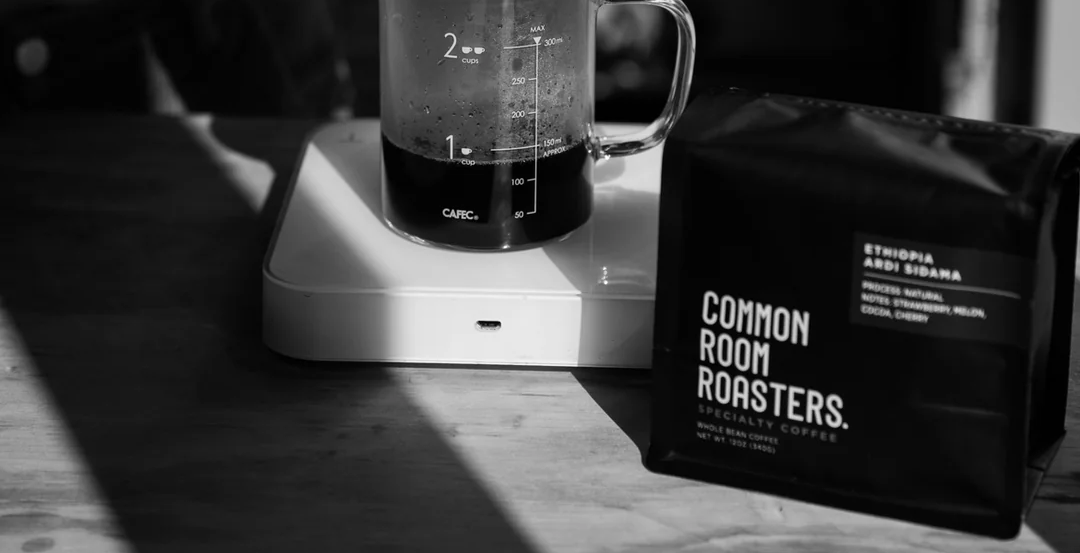From Farm to Cup: Washed vs. Natural Coffee

There are many different ways in which coffee is processed from cherry to roasted beans. Some of the most common processes include washed and natural.
These methods contribute to the tasting notes and mouthfeel of the brew. This blog will cover the differences between these two processes and how it contributes to the final result.
What is Washed Coffee?
Washed coffee, also known as wet-processed coffee, involves removing the cherry's outer layers before drying the coffee beans. The outer layers of the cherry contain fruity flavors filled with natural sugars. Through this technique it discards the pulp, mucilage, and skin to extract the main coffee bean- the cherry seed.
The process begins with harvesting the ripe cherries—usually bright red—then pulped to separate the beans from the skin and pulp.
The beans, still covered in sticky mucilage, are fermented in water for 12-48 hours to break down the mucilage. After fermentation, the beans are thoroughly washed and dried in the sun.
Washed coffee is known for its clean, bright flavors and high acidity. The meticulous removal of fruit residues from the cherries makes the beans have less fruity flavors and the tasting notes come through subtle but smooth.
What is Natural Coffee?
Natural coffee, or dry-processed coffee, skips the fermentation and washing stages. Instead, the harvested cherries are spread out to dry in the sun with the fruit still intact to the coffee bean. The profile often results in fruit forward flavors like berries, stone fruit, tea, syrupy and bright.
For Natural coffee, the bean can remain in its coffee fruit for the duration of drying, giving it a distinct profile compared to the washed coffee. It could take 3-4 weeks for the cherries to dry completely and for the inner coffee beans to reach the moisture content required for export, which is around 12%. The cherries are regularly turned to ensure even drying and prevent mold. Once dried, the beans are hulled to remove the dried fruit layers.
In contrast to washed coffee, natural processed coffee dries the whole cherry under the sun, with the beans absorbing flavors from the fruit and its sugars during the drying process. This method is simpler and more traditional and can have up to twice the body and sweetness of washed coffee.
Washed vs. Natural Coffee: Flavor Profiles
These two processing methods have a profound impact on your coffee's flavor profile. Washed coffees typically exhibit clean, bright, and acidic notes, with flavors like mild citrus, floral, and tea-like nuances. Meanwhile, natural coffees are full bodied and sweeter, with pronounced fruity and berry flavors, sometimes accompanied by a wine-like acidity.
How Processing Affects Taste
The washed process emphasizes the bean's intrinsic qualities, often leading to a more predictable and consistent flavor. On the other hand, natural processing allows for more flavor variation and complexity, reflecting the terroir and the fruit itself.
How to Choose Based on Your Taste
Choosing between washed and natural coffee depends on your flavor preferences. If you enjoy clean, bright, and acidic flavors, washed coffee is a good choice for you. But if you prefer sweet, fruity, and complex profiles, natural coffee is the way to go.
We recommend sampling both natural and washed coffees and experimenting with each in various brew methods to see how the tasting notes are accentuated with certain brews.
Washed and natural coffees offer distinct and delightful experiences. The washed method brings out the clarity and brightness of the coffee bean, while the natural process enhances its sweetness and complexity. But don't just take our word for it—explore both types to discover what suits your palate.
Here at Common Room Roasters, we offer a variety of processes and flavor profiles so that you have the opportunity to always experience something new or discover your go to brew.
We invite you to explore our range of Signature Blend, Premium Single Origins, or Reserve Single Origin beans and see what catches your eye.













